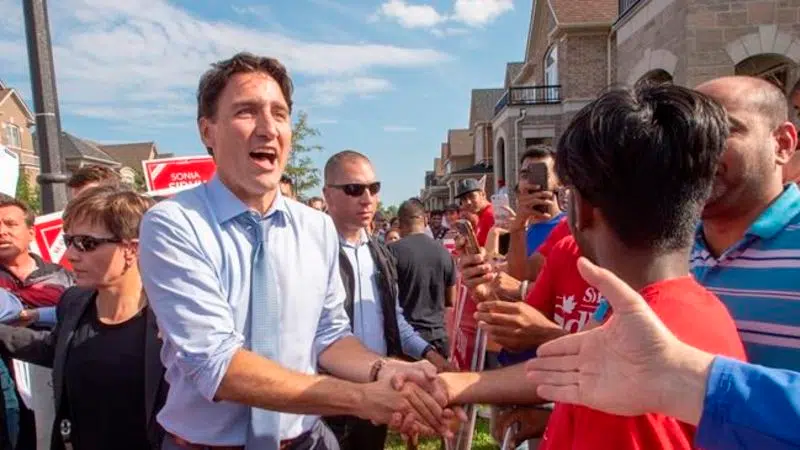
Liberals promise lower taxes, cellphone bills in pitch aimed at middle class
BRAMPTON, Ont. — Justin Trudeau promised Sunday to provide Canadians more relief from their tax and cellphone bills, part of the Liberal leader’s effort to steer his campaign back toward the issue of affordability and away from the blackface scandal that has dogged him since last week.
Speaking in the backyard of a suburban home in Brampton, Ont., Trudeau was looking to one-up the tax plan presented last week by his rival, Conservative Leader Andrew Scheer, by promising that if re-elected, he would make the first $15,000 of income tax free for most Canadians.
“Our plan lowers taxes the most for people who make less, gives the middle class some breathing room, and ensures that the wealthy don’t get an extra hand up,” said Trudeau, who was flanked by local candidates.
“With this tax cut, we’ll lift about 40,000 people out of poverty — twice as many as the Conservative plan — and make life more affordable for Canadians.”
